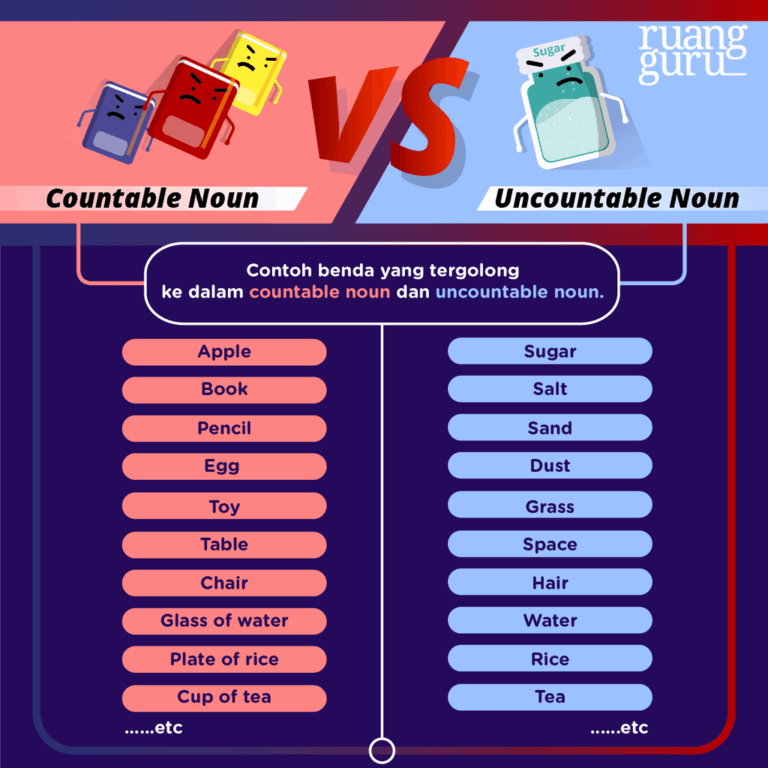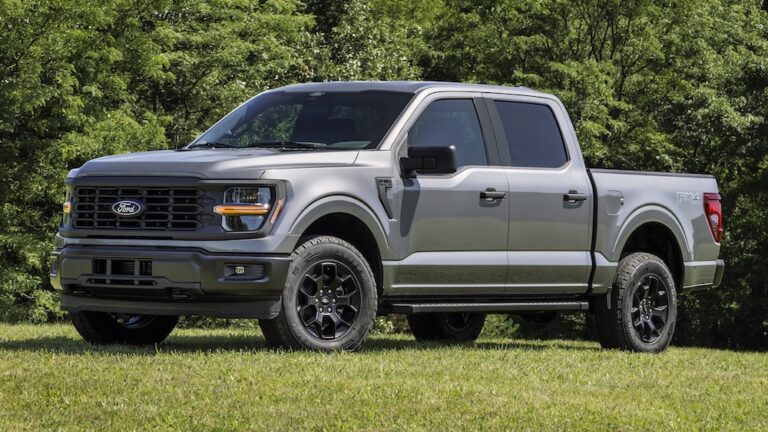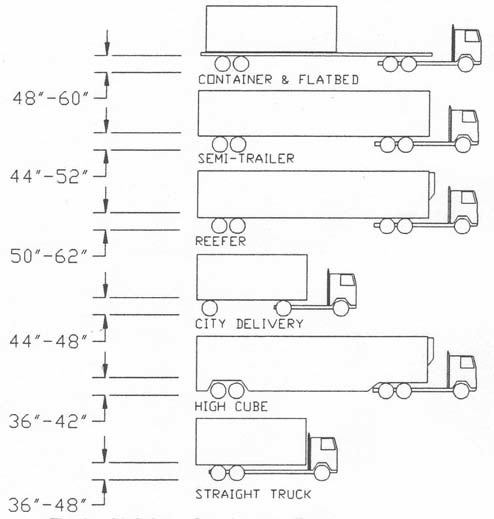U-Haul Trailer Rental Prices And Sizes: Your Comprehensive Guide to Moving Smart
U-Haul Trailer Rental Prices And Sizes: Your Comprehensive Guide to Moving Smart cars.truckstrend.com
Moving can be one of life’s most challenging yet rewarding experiences, often requiring careful planning and smart choices to ensure a smooth transition. For countless individuals and families embarking on a DIY move, U-Haul trailers stand out as an indispensable, cost-effective, and flexible solution. Whether you’re relocating across the country, clearing out a garage, or transporting a vehicle, understanding the various U-Haul trailer rental prices and sizes is paramount to making an informed decision that aligns with your specific needs and budget. This comprehensive guide will demystify the options available, helping you navigate the world of U-Haul trailer rentals with confidence.
Understanding the U-Haul Trailer Ecosystem: Types and Their Ideal Uses
U-Haul Trailer Rental Prices And Sizes: Your Comprehensive Guide to Moving Smart
U-Haul offers a diverse fleet of trailers designed to cater to a wide array of moving and hauling requirements. Each type serves a distinct purpose, offering unique benefits.
1. Cargo Trailers (Enclosed)
These trailers are fully enclosed, providing maximum protection for your belongings against weather elements, dust, and potential theft. They are ideal for transporting furniture, boxes, appliances, and other valuables that require a secure, dry environment.
- 4′ x 8′ Cargo Trailer: The smallest enclosed option, perfect for studio apartments, dorm rooms, or extra storage during a local move. It’s lightweight and easy to tow, even with smaller vehicles.
- 5′ x 8′ Cargo Trailer: The most popular size, suitable for a 1-2 bedroom apartment. It offers a good balance of capacity and maneuverability, fitting through most residential driveways.
- 5′ x 10′ Cargo Trailer: A step up from the 5×8, ideal for larger 2-bedroom apartments or smaller 3-bedroom homes. It provides extra length for longer items like mattresses and sofas.
- 6′ x 12′ Cargo Trailer: The largest enclosed trailer, designed for 3-4 bedroom homes. It features a double axle for enhanced stability and often includes a ramp for easier loading of heavy items like appliances and riding mowers.

2. Utility Trailers (Open)
Utility trailers are open-top and incredibly versatile, making them perfect for hauling oddly shaped items, landscaping materials, construction debris, or vehicles like ATVs and motorcycles. Their open design allows for easy loading and unloading.
- 4′ x 7′ Utility Trailer: The smallest utility option, great for light hauling like yard waste, small furniture pieces, or a single motorcycle.
- 5′ x 8′ Utility Trailer: A popular choice for DIY projects, hauling building materials, dirt, or multiple ATVs/motorcycles. Many come with a built-in ramp.
- 5′ x 10′ Utility Trailer: Offers more length for longer lumber, kayaks, or larger equipment.
- 6′ x 12′ Utility Trailer: The largest utility trailer, often used for transporting small vehicles, large landscaping projects, or heavy-duty equipment. It typically features a heavy-duty ramp and a double axle for increased weight capacity and stability.
3. Car Trailers (Vehicle Transport)

When your move involves transporting a vehicle, U-Haul offers two specialized options:
- Tow Dolly: This option lifts only the front wheels of your vehicle off the ground, allowing the rear wheels to roll. It’s lighter, more affordable, and generally suitable for shorter distances and front-wheel-drive cars.
- Auto Transport: A full four-wheel trailer that carries your entire vehicle, keeping all four wheels off the ground. This is the most secure option for long-distance moves, heavy vehicles, or those with all-wheel drive.
Factors Influencing U-Haul Trailer Rental Prices
U-Haul trailer rental prices are dynamic and influenced by several key factors. Understanding these variables can help you estimate costs and potentially find better deals.
- Trailer Size and Type: Larger trailers and specialized car haulers naturally command higher prices due to their capacity and construction.
- Rental Duration: Prices are typically quoted on a daily basis. Longer rental periods might offer a slight discount compared to multiple single-day rentals, but generally, the longer you rent, the more you pay.
- One-Way vs. In-Town (Local) Rental:
- In-Town (Local) Rentals: You pick up and return the trailer to the same U-Haul location. These typically have fixed, lower daily rates.
- One-Way Rentals: You pick up the trailer at one location and return it to another. One-way pricing is significantly more variable, depending on the distance, demand, and the specific origin and destination cities. U-Haul adjusts these prices daily to balance their fleet across the country, meaning prices can fluctuate significantly.
- Location and Demand: Prices can vary by city, state, and even neighborhood. High-demand areas or peak moving seasons (e.g., summer, end of the month, holidays) will generally see higher prices.
- Add-ons and Insurance: Optional add-ons like moving supplies (boxes, blankets) and insurance coverage (SafeTow, SafeMove) will increase your total cost.
How to Get a U-Haul Trailer Rental Quote and Book
Getting a quote and booking a U-Haul trailer is a straightforward process, primarily done through their official website or by calling their customer service.
- Visit U-Haul.com: Navigate to the "Trailers" section.
- Enter Your Details: Provide your desired pick-up location, drop-off location (if one-way), pick-up date, and the type of trailer you need (e.g., "Cargo Trailer").
- Select Trailer Size: The system will then show available sizes for your chosen type.
- Review Quote: The website will display real-time pricing for the chosen trailer, duration, and route. For one-way rentals, it will also show the maximum allowed mileage and days.
- Add Optional Items: You’ll have the option to add hitches, wiring, insurance, and moving supplies.
- Reserve: Once you confirm your selection, you can proceed with the reservation. You’ll typically need a credit card to secure the booking, though payment is usually made at pick-up.
- Confirm Details: Double-check your reservation confirmation for pick-up location, time, and any specific instructions.
Important Considerations Before Renting
Before you hitch up and hit the road, there are crucial factors to consider to ensure a safe and successful rental experience.
- Towing Vehicle Compatibility and Capacity: This is arguably the most critical aspect.
- Hitch: Your vehicle must have a properly installed hitch receiver. U-Haul requires a specific class of hitch for different trailers (e.g., Class I/II for smaller trailers, Class III/IV for larger ones).
- Hitch Ball: Ensure you have the correct ball size (typically 1-7/8", 2", or 2-5/16") compatible with the trailer’s coupler.
- Wiring: Your vehicle needs a working wiring harness for trailer lights (turn signals, brake lights, running lights).
- Towing Capacity: Crucially, your vehicle’s towing capacity (found in your owner’s manual) must exceed the gross weight of the loaded trailer. Never exceed your vehicle’s Gross Vehicle Weight Rating (GVWR) or Gross Combined Weight Rating (GCWR). U-Haul staff will often verify this before rental.
- Insurance Coverage: Your personal auto insurance policy may cover a rented trailer, but it’s essential to confirm this with your insurer. U-Haul offers supplemental coverage options like "SafeTow" (for damage to the trailer) and "SafeMove" (broader coverage for your belongings and liability). While optional, these can provide significant peace of mind.
- Loading and Weight Distribution: Proper loading is vital for safe towing. Load about 60% of the weight in the front half of the trailer, closer to the hitch. Secure all items to prevent shifting during transit, which can cause dangerous sway.
- Driving with a Trailer: Expect changes in vehicle handling. Drive slower, allow for increased braking distances, and make wider turns. Be extra mindful of blind spots and high winds.
Tips for a Smooth U-Haul Trailer Rental Experience
- Book in Advance: Especially during peak moving seasons (late spring to early fall) or end-of-month periods, trailers can be in high demand. Booking weeks in advance can secure your desired size and potentially better rates for one-way rentals.
- Be Flexible with Dates/Locations: If your schedule allows, try adjusting your pick-up or drop-off dates by a day or two, or exploring alternative U-Haul locations nearby. This can sometimes yield significant price differences for one-way moves.
- Inspect the Trailer Thoroughly: Before leaving the U-Haul lot, do a walk-around. Check tires, lights, brakes (if applicable), and look for any existing damage. Report anything you find to the U-Haul representative and take photos for your records.
- Understand the Rental Agreement: Read the terms and conditions carefully, especially regarding fuel policies, late return fees, and damage responsibility.
- Pack Smartly: Distribute weight evenly, place heavier items at the bottom and over the axle, and secure everything tightly with ropes or moving straps.
- Plan Your Route: Avoid steep grades, tight turns, or low overhead clearances that might be problematic with a trailer.
U-Haul Trailer Rental Prices And Sizes: Estimated Price Table
It’s crucial to understand that U-Haul prices are highly dynamic and fluctuate based on location, demand, and specific dates. The prices below are estimates for reference and can vary significantly. Always obtain a direct quote from U-Haul for accurate pricing.
| Trailer Type | Size (Width x Length) | Est. Local Daily Price Range | Est. One-Way Price Range (e.g., 500 miles) | Typical Use Case | Key Features |
|---|---|---|---|---|---|
| Cargo Trailers | Enclosed, weather-protected, secure | ||||
| 4′ x 8′ | $19.95 – $29.95 | $100 – $300+ | Studio/Dorm, extra luggage | Lightweight, easy to maneuver, low deck. | |
| 5′ x 8′ | $24.95 – $34.95 | $120 – $350+ | 1-2 Room Apt, small furniture | Most popular, good balance of size/cost. | |
| 5′ x 10′ | $29.95 – $39.95 | $150 – $400+ | 2-3 Room Apt, longer items (mattresses) | More space, still manageable for most vehicles. | |
| 6′ x 12′ | $34.95 – $49.95 | $180 – $500+ | 3-4 Room Home, appliances, large furniture | Largest enclosed, double axle for stability, often with ramp. | |
| Utility Trailers | Open, versatile for bulky/odd-shaped items | ||||
| 4′ x 7′ | $14.95 – $24.95 | $80 – $250+ | Yard work, small ATVs, debris | Compact, easy to tow, basic hauling. | |
| 5′ x 8′ | $19.95 – $29.95 | $100 – $300+ | Motorcycles, landscaping, small construction | Popular for DIY, ramp options often included. | |
| 5′ x 10′ | $24.95 – $34.95 | $120 – $350+ | Larger equipment, multiple ATVs, longer materials | Good for longer items, more capacity than 5×8. | |
| 6′ x 12′ | $29.95 – $39.95 | $150 – $400+ | Small vehicles, heavy equipment, large landscaping | Heavy-duty, double axle, typically includes ramp. | |
| Car Trailers | For vehicle transport | ||||
| Tow Dolly | N/A | $44.95 – $59.95 | $150 – $500+ | Front-wheel drive cars, short-medium distance | Lifts front wheels, lighter, more affordable. |
| Auto Transport | N/A | $54.95 – $79.95 | $200 – $800+ | All types of cars, long distance | Full four-wheel support, most secure, heavier. |
Disclaimer: The prices listed are estimated ranges and are subject to significant variation based on factors such as location, demand, rental duration, and the distinction between one-way and local rentals. For the most accurate and current pricing, please obtain a direct quote from the official U-Haul website or a U-Haul representative.
Frequently Asked Questions (FAQ)
Q1: How much does U-Haul trailer rental cost?
A1: Costs vary widely. Local daily rentals typically range from $14.95 to $79.95, while one-way rentals can range from $80 to over $800, depending on the trailer size, distance, and demand. Always get an online quote for your specific needs.
Q2: What size U-Haul trailer do I need?
A2: It depends on the volume and type of items.
- Cargo Trailers: 4×8 for small moves (dorm room), 5×8 for 1-2 rooms, 5×10 for 2-3 rooms, 6×12 for 3-4 rooms.
- Utility Trailers: Based on the bulkiness of items like landscaping materials, ATVs, or appliances.
- Car Trailers: Tow dolly for lighter, front-wheel-drive cars on shorter trips; auto transport for all cars, especially for long distances or heavier vehicles. When in doubt, it’s often better to go slightly larger than too small.
Q3: Do I need a special license to tow a U-Haul trailer?
A3: In most U.S. states, a standard driver’s license is sufficient for towing U-Haul trailers, as their trailers are generally designed to fall within the weight limits that don’t require commercial driver’s licenses. However, it’s always wise to check your specific state’s DMV regulations.
Q4: Can I rent a U-Haul trailer one-way?
A4: Yes, U-Haul specializes in one-way rentals, allowing you to pick up a trailer in one city and drop it off in another. Be aware that one-way rates are often higher and more variable than local rentals.
Q5: Do U-Haul trailers have brakes?
A5: Larger U-Haul trailers, particularly the 6×12 cargo and utility trailers, as well as all auto transports, are equipped with surge brakes. These brakes activate automatically as your towing vehicle slows down, providing additional stopping power. Smaller trailers typically do not have brakes.
Q6: What do I need to tow a U-Haul trailer?
A6: You’ll need a towing vehicle with a properly installed hitch receiver, a compatible hitch ball (typically 1-7/8", 2", or 2-5/16"), and a working wiring harness for the trailer’s lights. Most importantly, your vehicle must have sufficient towing capacity for the loaded trailer.
Q7: Is insurance required for U-Haul trailers?
A7: While not legally required, U-Haul offers optional coverage like "SafeTow" (for damage to the U-Haul trailer) and "SafeMove" (broader coverage for your belongings and liability). It’s highly recommended to consider these options, as your personal auto insurance may not fully cover rented trailers or your cargo.
Conclusion
Navigating the options for U-Haul trailer rental prices and sizes doesn’t have to be overwhelming. By understanding the different trailer types, the factors influencing their costs, and the essential considerations for safe towing, you can confidently select the perfect trailer for your next hauling or moving project. U-Haul’s extensive network and diverse fleet make it an accessible and practical choice for countless DIY movers. With careful planning, a clear understanding of your needs, and adherence to safety guidelines, your U-Haul trailer rental experience can be a smooth and efficient step towards your new destination or a completed project.






